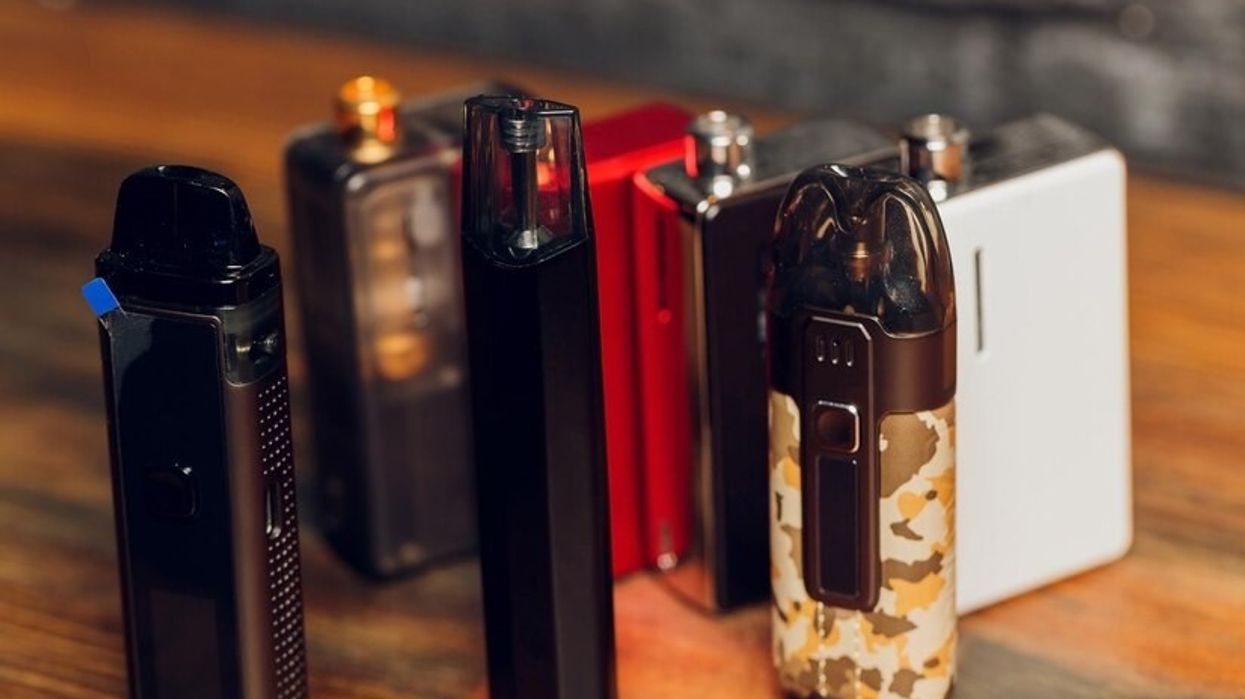Official figures revealed that the number of children using vapes has tripled in the past three years.
The UK government has decided to ban disposable vapes to tackle the rise in youth vaping and protect children’s health, Prime Minister Rishi Sunak announced on Sunday (28 January 2024) during a visit to a school.
Official figures revealed that the number of children using vapes has tripled in the past three years, with nine per cent of 11 - to 15-year-olds now affected by this rising trend.
Disposable vapes are believed to be mainly driving the worrisome rise in youth vaping, with the number of 11- to 17-year-old vapers using disposables estimated to have increased by almost ninefold in the last two years.
Sunak said: “As any parent or teacher knows, one of the most worrying trends at the moment is the rise in vaping among children, and so we must act before it becomes endemic.
“The long-term impacts of vaping are unknown and the nicotine within them can be highly addictive, so while vaping can be a useful tool to help smokers quit, marketing vapes to children is not acceptable.”
Health Minister Andrea Leadsom believes that a ban on disposable vapes is crucial for stopping youth vaping in its tracks.
“Nicotine is highly addictive - and so it is completely unacceptable that children are getting their hands on these products, many of which are undeniably designed to appeal to young people.
“Along with tougher enforcement measures, we are making sure vapes are aimed at the people they were designed to help - adults who are quitting smoking,” she said.
New measures to crack down on underage sales
New powers will be introduced to restrict vape flavours, introduce plain packaging, and change how vapes are displayed in shops so they don’t appeal to children, the prime minister added.
Moreover, additional fines would be imposed on shops in England and Wales that sell vapes illegally to children, and that would come along with the maximum £2,500 fine that local authorities can already impose.
To tackle underage tobacco and vape sales, the government will also empower trading standards officers to act ‘on the spot’.
Vaping alternatives - such as nicotine pouches - will also be banned in the UK as children are increasingly turning to these highly addictive substitutes, the Department of Health and Social Care (DHSC) said.
Sunak maintained that these changes, alongside the government’s commitment to stop children who turn 15 this year or younger from ever legally being sold cigarettes will leave a “lasting legacy”.
In October 2023, the UK government launched a consultation on smoking and vaping, which received an overwhelming response, with nearly 70 per cent of parents, teachers, healthcare professionals and the general public supporting the disposable vape ban.
Health impacts of smoking and vaping
Smoking remains the single largest preventable cause of death in England, costing the NHS £17 billion each year, said Victoria Atkins, the Secretary of State for Health and Social Care.
There's one smoking-related hospital admissions in England almost every minute, according to her.
“The health advice is clear: vapes should only ever be used as a tool to quit smoking. But we are committed to doing more to protect our children from illicit underage vaping, and by banning disposable vapes we’re preventing children from becoming hooked for life,” she added.













